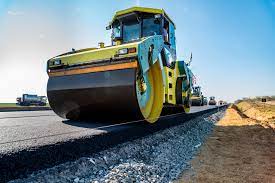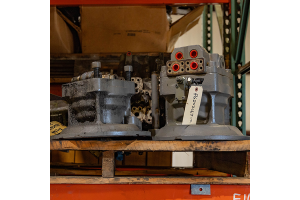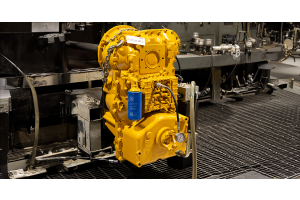
New technology hitting worksites everywhere is helping construction companies increase productivity, safety, while reducing downtime. In the world of asphalt, rollers and road compaction technology has been increasing steadily for years. Newer rollers adhere to regulations better, assist opertors with advanced functions, and continue to increase the quality of road design.
Tim Kowalski, HAMM application support manager with Wirtgen America told Asphalt Contractor, "Innovation is an ongoing process on with our equipment. "We're always listening to contractors and changing our machines based on what they are saying and what their needs are. We're also changing the rollers to support the mix designs, the traffic loads, the type of materials, the oils that we're using and everything else that is changing."
Kowalski said that in order to get the same kind of performance of the mixes that they are developing for roadways, they're not going to be able to compact them the same way. As a result, research continues to improve how to develop a roller to provide better, faster, and long lasting compaction.
Intelligent Compaction or (IC) are systems that feature an accelerometer-based measurement system, as well as GPS, infrared temperature sensors, and an on-board computer that provides real-time compaction information to the operator.
There have been many advancements in IC over the past few years aimed at reducing the guesswork in the paving process but many contractors still have not adopted this technology. As a result, manufacturers are continually evolving these systems to meet contractor needs.
"Contractors want things simple," Kowalski told Asphalt Contractor.
When it comes down to it, if new technology is simple to use, and is efficient, contractors will use it.
"The rollers are getting more and more sophisticated and we want to make it more simple for the operators to operate while also helping them to take guess work out of compaction." Vijay Palanisamy, director of product marketing and communications at Dynapac North American says. "For example in our large asphalt rollers we have standard intelligence built in for asphalt temperature and impact spacing which provides basic intelligence for operators without lot of investment. This allows operators to compact at the right speed and also right temperatures."
Sophisticated Simplicity provides a data sharing system with the contractor and agencies like the DOT to make sure all entities involved are on the same page.
The new technology will gain more traction as it proves to be a way contractors can avoid missing density on projects however, with systems already in place, getting entire crews to learn the new technology can be difficult.
"Many contractors still are not using intelligent compaction unless their project or DOT is mandating them to do so," Mark Eckert, global product manager at Volvo says. This is mainly because contractors are still unsure of the benefits and the systems have notoriously been seen as difficult to use and expensive to implement."
Challenges filling positions with qualified operators is another reason new technology is in demand. New machines that are easier to use makes getting operators into cabs easier. Machines that are more comfortable, less complicated, safer, and even enjoyable to operate will attract more workers to industries like asphalt companies.
Battery operated autonomous machines are starting to crop up on worksites, however, the machines aren't exactly free of human control. They operate more as a remote control machine. Complicated work and safety concerns limit the ability of machines to work without human interaction. However, many aspects of the machines, including monitoring performance, can be handled by computers.
Contractors should expect to see some of these machines on jobsites very soon. The construction industry will get a closer look at the future at evens like bauma this fall in Germany and ConExpo 2023.









